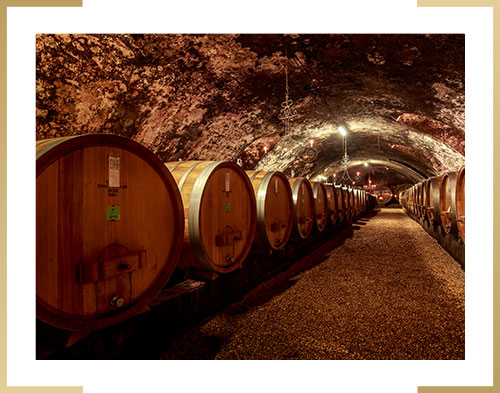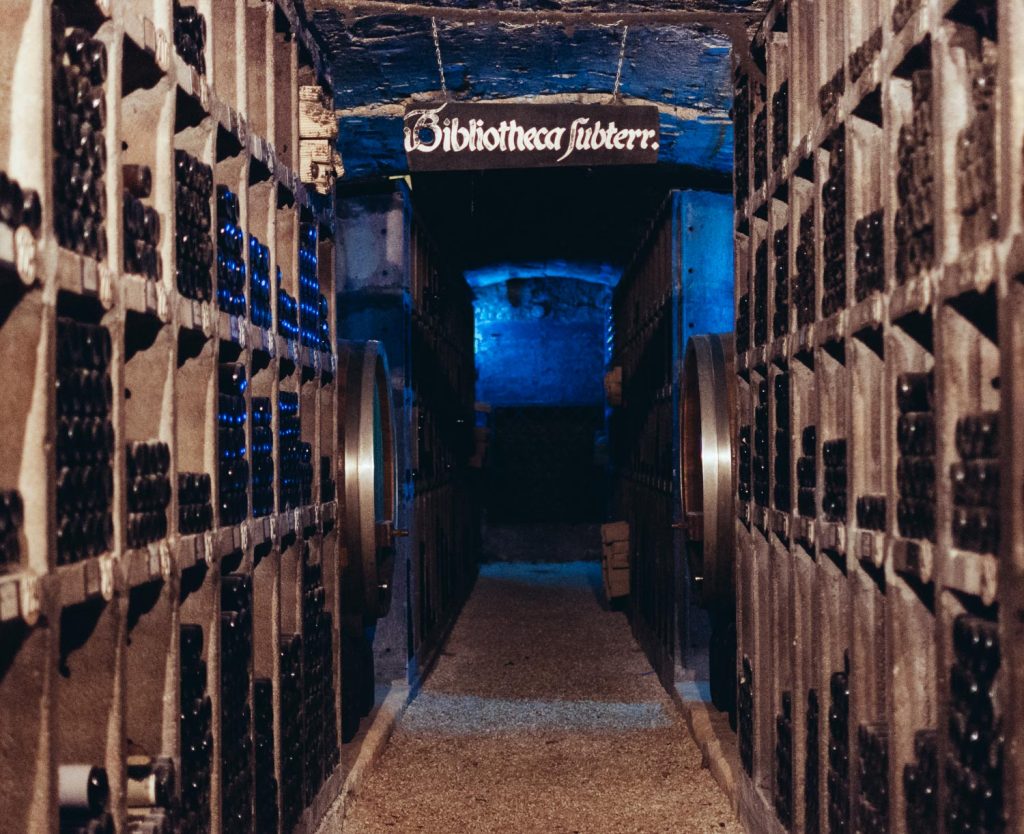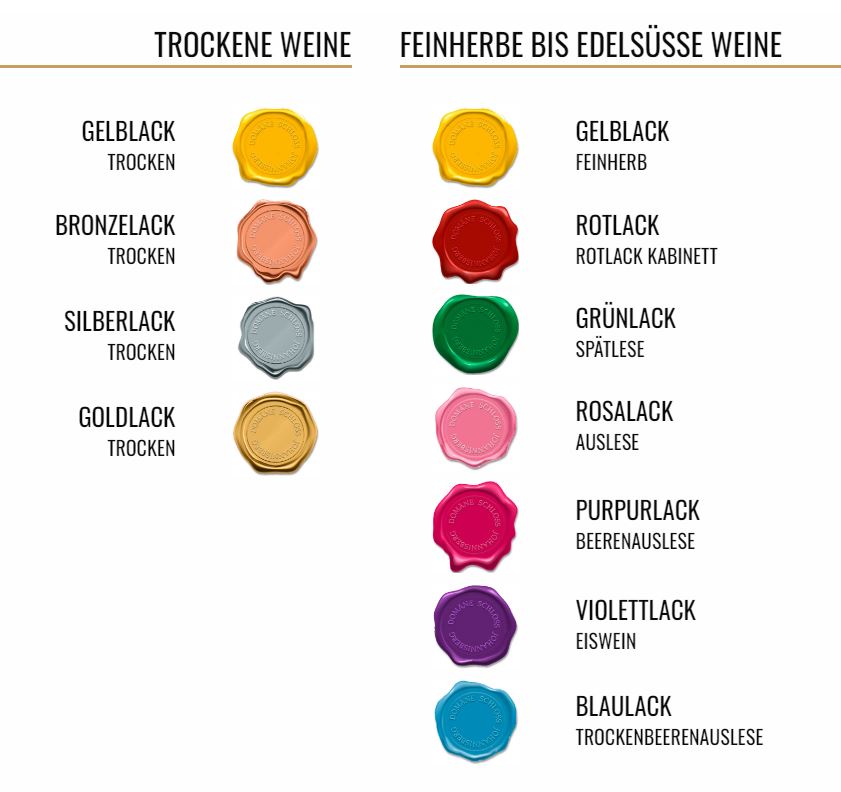Schloss Johannisberg stands as a beacon of German winemaking excellence. For three centuries, this historic winery has produced wines that have captivated the palates of connoisseurs around the world. The story of Schloss Johannisberg is not just one of longevity but of innovation, tradition, and an unwavering commitment to quality. In this essay, we will take a deep dive into the rich history of Schloss Johannisberg and explore its remarkable journey through time.
Schloss Johannisberg
65366 Geisenheim, Germany +49 6722 70090
schloss-johannisberg.de Google Map
The Birth of a Winemaking Icon
Schloss Johannisberg’s history dates back to 1720 when it was founded as a winery. However, it is important to note that the estate has even deeper roots as it was initially established as a Benedictine monastery in the 12th century. It was during this monastic period that the foundations of winemaking at Johannisberg were laid. The monks recognized the exceptional potential of the Rheingau region for cultivating vineyards and producing wines of distinction.
The fertile soil, favorable climate, and south-facing slopes of the region created the perfect conditions for viticulture. The monks meticulously cared for the vineyards, developing expertise in cultivating the Riesling grape, a variety that would become synonymous with the Rheingau and Schloss Johannisberg in particular. The quality of their wines began to draw attention, and soon, Johannisberg wines were in demand across Europe.

The Legend of Napoleon and the Golden Seal
One of the most captivating stories in Schloss Johannisberg’s history involves a visit from the French emperor Napoleon Bonaparte. In 1805, Napoleon visited the estate and was so impressed by the wines that he made a decree, declaring Schloss Johannisberg an imperial domain and granting it exclusive rights to the name “Napoleonwein” or “Napoleon Wine.” This decree signified the exceptional quality of the wines and their royal recognition. To ensure the authenticity of these wines, each bottle was sealed with a golden capsule bearing the imperial seal.
The tradition of using these golden seals continues to this day and is a hallmark of authenticity for Schloss Johannisberg wines. It is a reminder of the winery’s distinguished history and its unique connection to one of the most iconic figures in European history.
Terroir and Vineyards: A Taste of the Rheingau
The terroir of the Rheingau region is one of the secrets behind the exceptional character of Schloss Johannisberg wines. The estate’s vineyards benefit from a combination of factors that make them truly unique. The south-facing slopes receive ample sunlight, allowing the grapes to ripen slowly and develop their flavors. The proximity to the Rhine River also has a moderating effect on the climate, protecting the vines from extreme temperature fluctuations.
Schloss Johannisberg owns several vineyards, each with its own distinct terroir. Notable among them are the Klaus, Rotlack, and Schlossberg vineyards. These vineyards have varying soil compositions, elevations, and microclimates, which contribute to the complexity and diversity of the wines produced by the estate. Riesling is the primary grape variety cultivated here, and its elegant expression is the hallmark of Schloss Johannisberg wines.
The renowned Heinrich Heine famously remarked, “The Johannisberg would be just the mountain I would have me follow everywhere” (my translation), if only he had the faith to move mountains. We are totally in agreement. World-famous is the Riesling from the winery Schloss Johannisberg in the picturesque Rheingau.
excellent Rieslings of all quality levels result from the perfect fusion of the winery’s excellent tradition, the graphite found in the famed mountain, and their attention on great quality.
Typically, an ancient iron gate marks the conclusion of your journey through the magnificent passageways beneath the castle. Through the bars, you can see the riches and the sign that reads “Bibliotheca subterranea.” However, you can’t just enter. You can hardly imagine our excitement at receiving the invitation!
These are the true origins of Riesling’s history. The “Bibliotheca subterranea” was first documented in historical accounts in 1782. A.D. 1782! At that time, what were you doing? There is wine down there that dates back to 1748. Back then, the Austrian Succession War was raging throughout Europe (Maria Theresia emerged victorious). Even their independence from Europe was lacking in the United States of America.
An incredible encounter. I felt a buzz just from handling some of these bottles. You can get a general notion of the incredible legacy this outstanding winery carries by strolling through the centuries-old Riesling vineyard.

Still, they have it! You are entering a construction site when you enter the Schloss Johannisberg region. Because visionary individuals will determine this winery’s future. The wine storage area is extended. More than enough room for the wood barrels and steel tanks. Thus, everything needed for the production can be assembled in one location. Additionally, they recently revised their grading system to accommodate even better dry Rieslings.
Winemaking Tradition: The Art of Craftsmanship
Winemaking at Schloss Johannisberg is a blend of tradition and innovation. The winemakers have preserved the time-honored techniques that have been refined over centuries. The use of old oak barrels for fermentation and aging imparts a subtle complexity to the wines, and the slow fermentation process allows for the full expression of the grape’s flavors.
What sets Schloss Johannisberg apart is its commitment to perfection. Only the finest grapes are selected for winemaking, and the strictest quality control measures are applied at every stage of the winemaking process. The result is wines that balance the essence of their terroir with the artistry of the winemakers, creating a harmonious symphony of flavors and aromas.

Notable Wines: Elegance in Every Bottle
Schloss Johannisberg has gained a reputation for producing wines of exquisite quality and elegance. Among its portfolio, there are several notable wine styles that have become legendary in the world of German wine.
Spätlese: Schloss Johannisberg is the birthplace of Spätlese, a late-harvest wine category that signifies wines made from grapes picked later in the harvest season. These wines are known for their balance of sweetness and acidity, making them versatile for pairing with a wide range of dishes.
Auslese: The Auslese wines from Schloss Johannisberg are a step further in ripeness, highlighting the richness of the Riesling grape. These wines are characterized by their luscious sweetness and intense fruit flavors.
Eiswein (Ice Wine): Eiswein, or Ice Wine, is a rare and luxurious treat. Schloss Johannisberg’s Eiswein is made from grapes that are left to freeze naturally on the vine, concentrating their sugars and flavors. The result is a dessert wine of exceptional sweetness and complexity.

Awards and International Recognition
Schloss Johannisberg’s unwavering commitment to excellence has not gone unnoticed by the international wine community. The estate has garnered numerous awards and accolades over the years, cementing its status as a world-class winery. These accolades serve as a testament to the dedication and passion of the team behind the winemaking at Schloss Johannisberg.
Modern Innovations: Embracing Tradition and Technology
While Schloss Johannisberg proudly maintains its winemaking traditions, it also embraces modern innovations to enhance quality and sustainability. The use of technology in monitoring vine health, optimizing harvest times, and implementing eco-friendly practices in the vineyards demonstrates a forward-looking approach to winemaking. The winery’s commitment to sustainability and responsible viticulture ensures that future generations will continue to enjoy the fruits of this historic estate.
The Visitor Experience: A Glimpse into History
For wine enthusiasts, a visit to Schloss Johannisberg is not just an opportunity to taste exceptional wines but also to immerse themselves in history. The castle itself is a magnificent structure that serves as a cultural attraction, offering guided tours, tastings, and events that allow visitors to explore the winery’s heritage.
A Legacy of Excellence
In closing, Schloss Johannisberg’s 300-year journey through the world of German winemaking is a testament to the enduring legacy of this remarkable estate. From its humble beginnings as a monastery to its exclusive rights granted by Napoleon, the golden seals on its bottles symbolize a commitment to quality that has stood the test of time.
The terroir of the Rheingau region and the winemaking traditions passed down through generations have combined to create wines of exceptional elegance and complexity. Schloss Johannisberg continues to inspire wine enthusiasts around the world with its dedication to perfection and a reverence for history.
As we raise a glass of Schloss Johannisberg’s Riesling, we toast to the past, present, and future of this illustrious winemaking icon. May it continue to grace our tables with its extraordinary wines for centuries to come.
This essay provides an in-depth exploration of the history of Schloss Johannisberg, its winemaking traditions, notable wines, and its enduring legacy in German winemaking. Feel free to use this essay as a reference or expand upon it as needed for your wine blog.
The wines